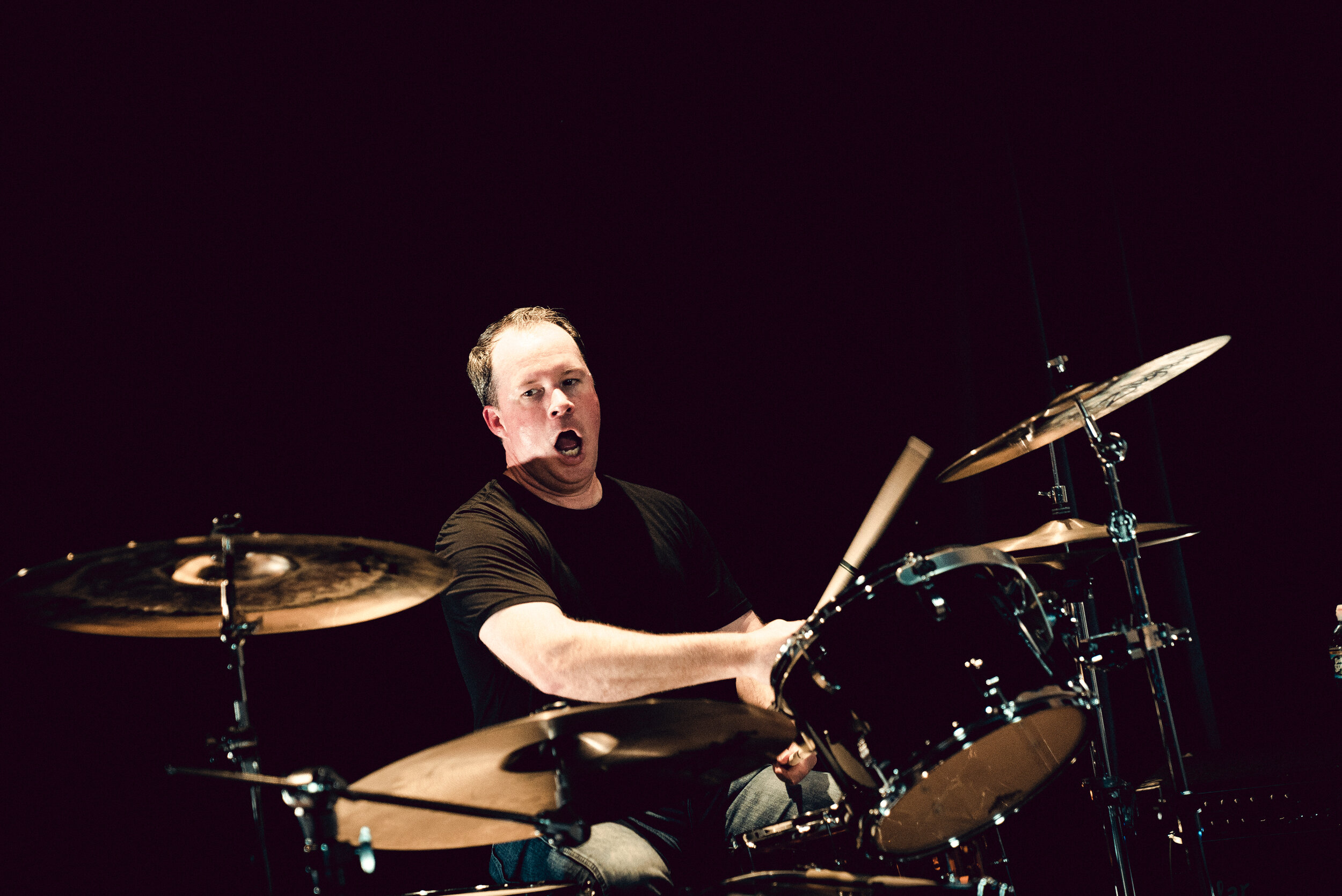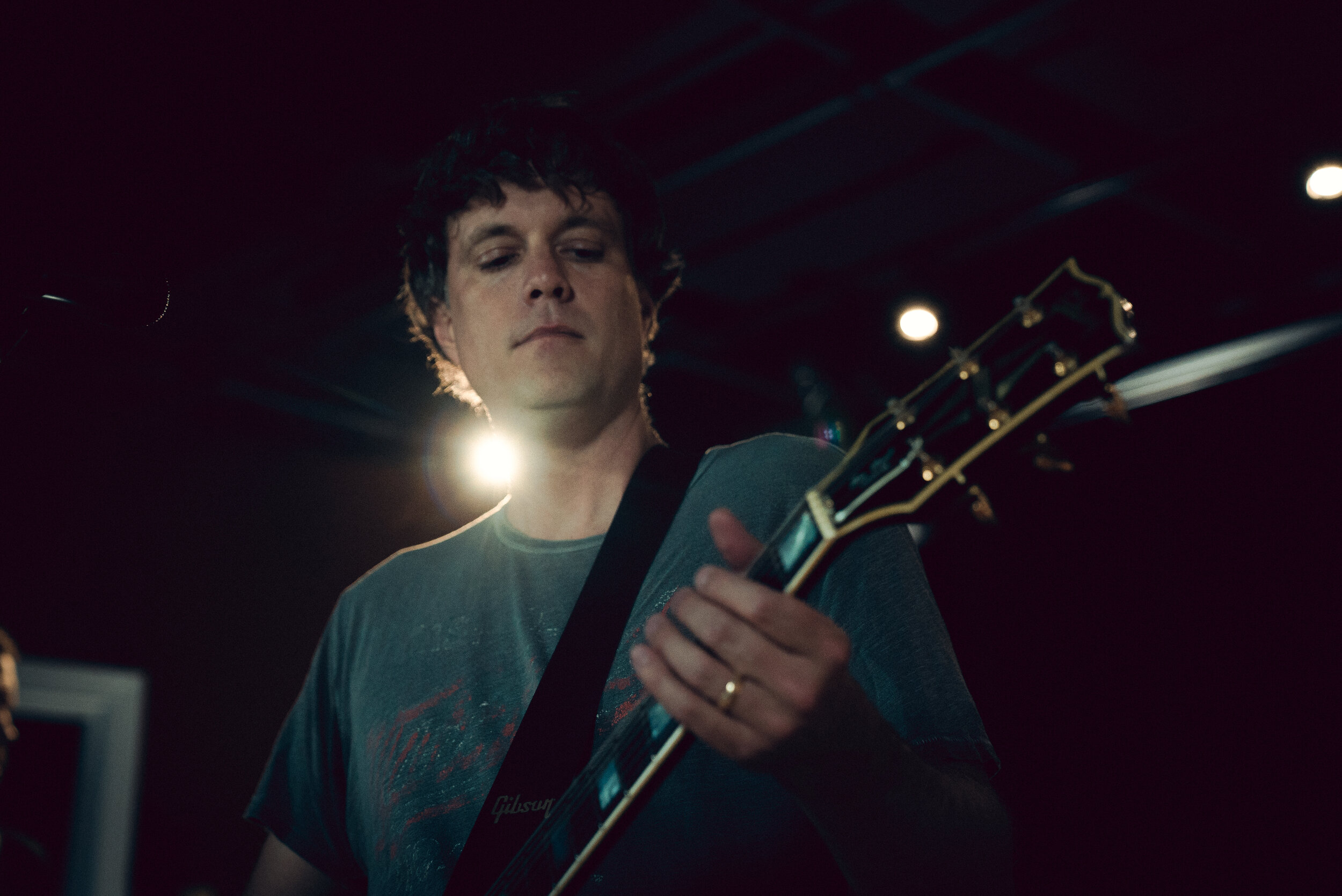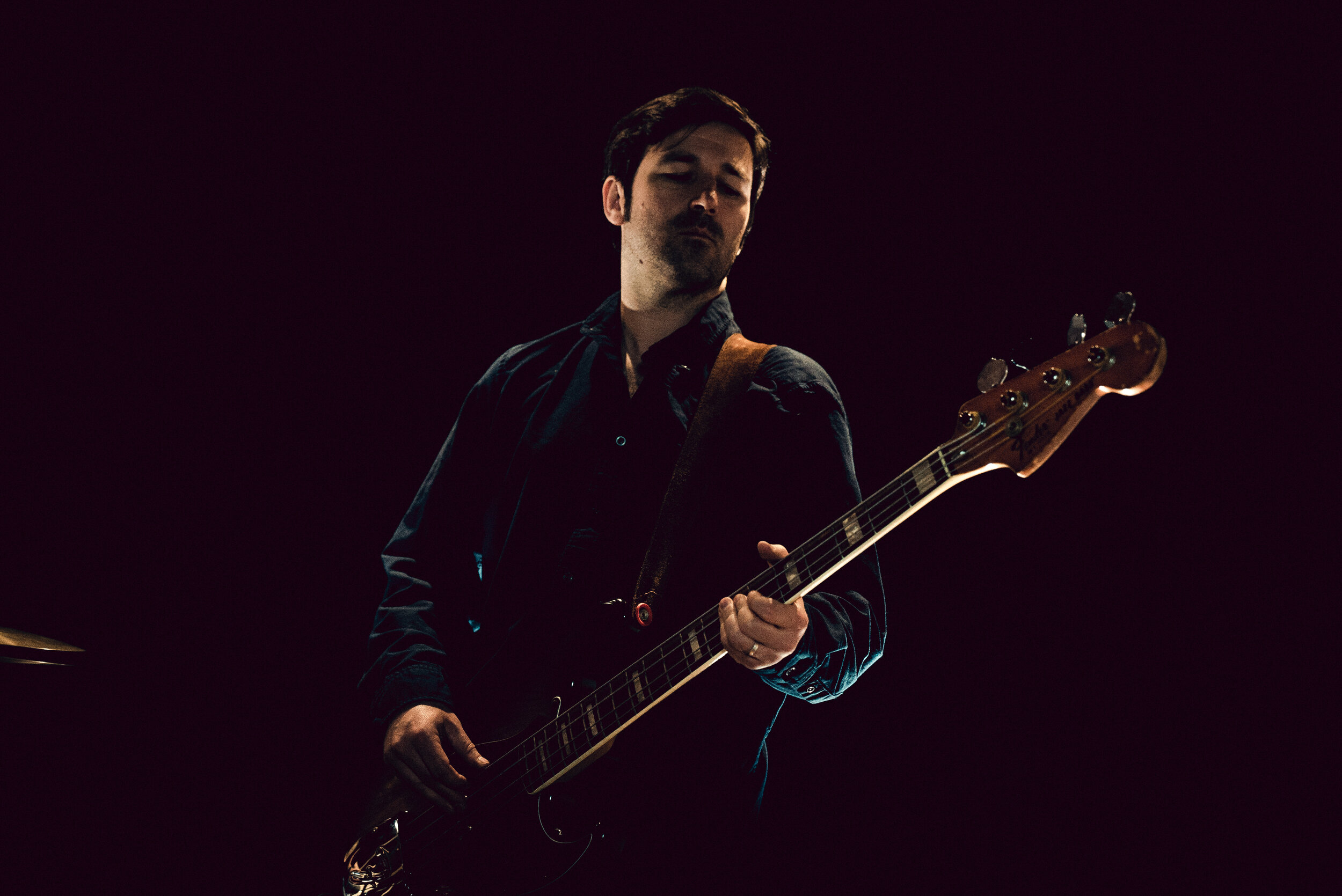Biography
Dylan Clark felt the calling at an early age. “My dad was a huge music fan,” he says. “I grew up hearing stuff like Elvis Costello, Joe Jackson and The Kinks in my house. Then I’d catch Pink Floyd or Rush from the older kids in the neighborhood. It was a great rock and roll learning experience—one that maybe people don’t have anymore… or if they do, it just looks a little different.”
Fascinated and fired up by the sounds that surrounded him, Clark put his first band together when he was just 12. There was no grand concept behind it—just some school pals getting together to kick out the jams—but then again, lifelong obsessions rarely come with master plans. “Me and my friends were really interested in music, and we just wanted to play,” he recalls. “This was around ’89-’90, and the whole alternative thing was happening, and we just wanted to be a band—it really was that simple. I didn’t think about writing songs at first, but my father said, ‘Don’t waste a lot of time doing other people’s songs. You should try to write your own.’ And when I was 13, that’s what I started doing.”
“The Calling, the sixth and latest full-length record from The Milwaukees, Clark’s long-running Jersey City quartet, is a veritable masterclass in timeless, straight-ahead guitar rock.”
Thirty years later, he’s still doing it. The Calling, the sixth and latest full-length record from The Milwaukees, Clark’s long-running Jersey City quartet, is a veritable masterclass in timeless, straight-ahead guitar rock. Filled with ringing guitar chords, soulful vocals, and anthemic choruses that would sound equally inspiring in a sweaty barroom or a packed-to-the-rafters arena, the album’s ten tracks amply testify to the magic that can happen when heartfelt, finely-honed songcraft meets powerful, sympathetic musicianship.
human relationships, addiction, and love—these are the things that interest me
Dylan Clark
“I don’t write too many autobiographical songs,” Clark explains. “I don’t want to do songs about me, per se; I like to hang in the character, whatever the character’s doing at the time. But human relationships, addiction, and love—these are the things that interest me, and probably always were the things. Because that’s always what comes out.”
There are audible traces of the Foo Fighters, The Clash, The Who and Tom Petty and the Heartbreakers in The Milwaukees’ music, while The Calling producer Tom Beaujour (Nada Surf, Juliana Hatfield) describes the quartet as sounding “like The Hold Steady fronted by fucking Bryan Adams”. A band that truly exists outside of time, The Milwaukees don’t give a damn about musical fashions or trends—all they really care about is writing and recording songs that hit you in the heart and gut, sound great with a cold beer in your hand, and will take up residence in your brain for days. The Calling’s many highlights like “No Way Out,” “Stay Gold,” “Proud of Me” and the aching title track could have easily been hits 25-30 years ago, and (in a just universe) should still be able to find an audience well beyond the band’s cult-like following of diehard fans.
“I’ve always written freely, and never tried to hang on to one particular movement or moment,” says Clark. “But there is a poppiness in our sound that was probably subconsciously influenced by stuff that I heard on the radio in the Eighties; it gets into you and you can’t get it out. Some of the bands that we’ve played with have been like, ‘Your singer sounds like Eddie Money—what the fuck is this?’” he laughs. “And I’m like, ‘I’m not doing this on purpose; this is how I sound!’”
“When we started, there was still a little bit of a rock ‘mainstream,’” says lead guitarist Jeff Nordstedt, who joined The Milwaukees in 1999, right before the release of Missile Command, the band’s first proper album. “But we weren’t making accessible-sounding music in the interest of becoming rich and famous; we just did it because it was the sound that was in our heads, the sound that excited us. And we’re still chasing that sound today.”
20 Years
For over two decades now, Clark and Nordstedt have stuck together through shitty van tours, misadventures like getting “banned for life” from Canada
For over two decades now, Clark and Nordstedt have stuck together through shitty van tours, misadventures like getting “banned for life” from Canada, and multiple turnovers in the rhythm section. (Donovan Cain and Austin Faxon now hold things down on the bass and drums, respectively.) If anything, their relationship mirrors the kind of creative partnership and musical telepathy that Tom Petty enjoyed with Mike Campbell; Clark writes and sings the songs, while Nordstedt further refines them with layers of melodic-yet-understated fretwork. “Mike Campbell is my hero,” Nordstedt enthuses. “That dude is so focused in his pursuit of craft, but as a musician he’s also totally happy to play a supporting role, and to excel at it. That’s what I want to do, too.
“Dylan is a supremely confident person,” he continues. “When I joined the band, the confidence of the band was something that far exceeded my personal confidence, and I’ve always enjoyed that ride. Like, I can just sit right in here and do what I do, and it makes the group better. I get to ride on that wave that starts with him, but is ultimately the result of all of us.”
“I think the big thing that Jeff and I have is that we both respect each other’s loyalty to the thing that is The Milwaukees,” says Clark. “He’s always been there for me. Going through lineup changes, and even when I hit the point where I realized that I couldn’t sleep on couches and play shows for gas money any more, he’s always been like, ‘I’m not done with this if you’re not done.’”
Along with a still-burning affinity for their musical mission, Clark’s circa-2009 decision to take the band off the touring treadmill, raise a family and only play select shows within a reasonable drive of Jersey City is probably what’s kept The Milwaukees alive and kicking to this day. “We didn’t go as hard as some touring bands, but we did our fair share,” says Clark. “I just didn’t want it to become something that I didn’t like. We saw some great bands go out for these long stretches where it just broke them, and we didn’t want that to happen to us…
“We’ve also seen bands getting or chasing deals, and then that’s what broke them up; or, it looked like they were going to make it big, and it didn’t happen so then they stopped playing. We’re family, so those kinds of squabbles always seemed kind of silly to us. It’s like, ‘Why would you even be in a band with people you fight with all the time?’”
Plus, says Nordstedt, being in The Milwaukees is still a total blast. “I know our music would never be described as whimsical or lighthearted,” he shrugs. “But as musicians and people, we wouldn’t have gone this far if this wasn’t a whole hell of a lot of fun for us. And it’s not fun in a parody way; it’s more like, ‘We’re playing these riffs really loud with guitars—how cool is that?’”
“Instead of being bummed out that we’ve never quote-unquote made it, I’m appreciative of all the experiences and fun that we’ve had,” Clark agrees. “Nobody ever said, ‘We’re not gonna make it, our dream is over.’ It was always just, ‘All right, see you at practice on Tuesday!’
“About ten years ago,” he continues, “I realized, ‘This is something that you do—and as long as you enjoy it, keep doing it.’ And as long as people like it, and we like it, we’re gonna keep playing. That’s just it.”







